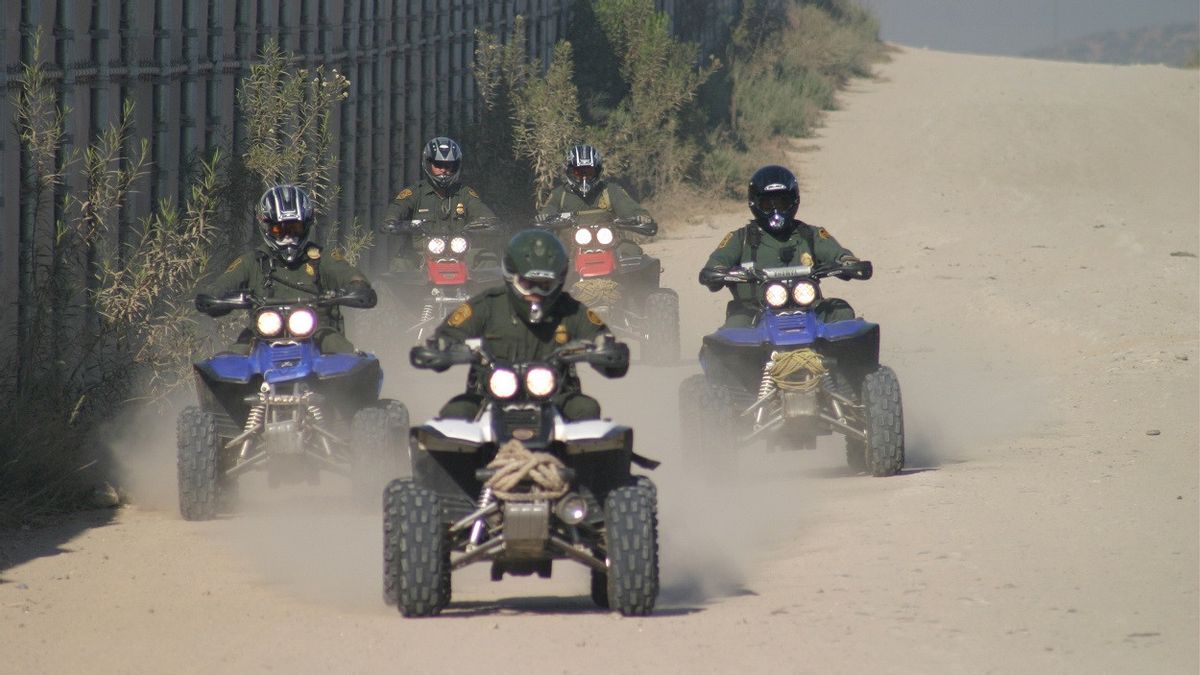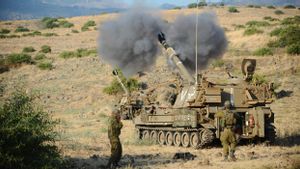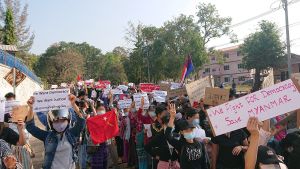JAKARTA - The United States will require thousands of border guard agents to wear body cameras, according to two officials and government documents, a major operational change that could improve agency surveillance and also help catch criminal activity.
The policy is planned to begin in parts of Texas and New Mexico during the summer, extending to Arizona, California, Vermont, and the busy Rio Grande Valley in Texas in the fall and winter, according to a recent government assessment of how the device is doing. may affect privacy.
Pro-immigrant activists are likely to welcome this increased scrutiny, following criticism of border guard agencies for their excessive use of force and institutional racism. Meanwhile, the union for border patrol agents has also endorsed the cameras, saying they can assist criminal investigations and help demonstrate that agents are acting professionally.
The American Civil Liberties Union and other groups have asked border patrols to use cameras to increase accountability after several fatal shootings by law enforcement over the past decade.

Brandon Judd, president of the National Border Patrol Council, stressed that agents must have access to the footage, including when an agent is accused of wrongdoing.
"There's no way to delete the tape, there's no way to check the tape, so there's no reason for agents not to have access", he said in an interview, citing Reuters Wednesday, August 4.
The Border Patrol's parent agency, US Customs and Border Protection (CBP) is the largest law enforcement agency in the United States, presenting unique challenges to the collection and retention of video footage. Records of illegal activity, use of force, or agent misconduct may be used as evidence in investigations or prosecutions, the results of CBP's internal assessments.
The cameras could offer new insights into southern border policing, where migrant arrests have risen to a 20-year high in recent months, with several arrests in remote locations.

In cases where the recording can be used as evidence in a criminal case, it can be kept for up to 75 years, according to an internal assessment. Records that have no value as evidence will be destroyed within 180 days.
To support this program, CBP budgeted a $13 million contract to equip 3,800 border patrol agents with body cameras, as well as to connect the cameras to a cloud-based storage system. There has been no response from CBP regarding this matter.
Previously, CBP conducted a small trial of the body camera in 2015 but ultimately chose not to continue its use at that time. The agency's assessment at the time said the cameras would likely reduce the use of physical force on the job, but cited several reasons not to adopt the device, including cost and agency morale.
Gil Kerlikowske, CBP commissioner at the time said another consideration was that the cameras 'did not hold up very well' in the field, where they could be thrown into bushes or soiled with dust and dirt.
SEE ALSO:
To note, the use of body cameras has become more familiar since 2015. Meanwhile, the US Department of Justice said in June that all their agents would be required to wear cameras when executing search and arrest warrants.
"Now there are police officers who don't want to take to the streets without their body cameras", Kerlikowske said, supporting the idea of using body cameras.
The English, Chinese, Japanese, Arabic, and French versions are automatically generated by the AI. So there may still be inaccuracies in translating, please always see Indonesian as our main language. (system supported by DigitalSiber.id)


















